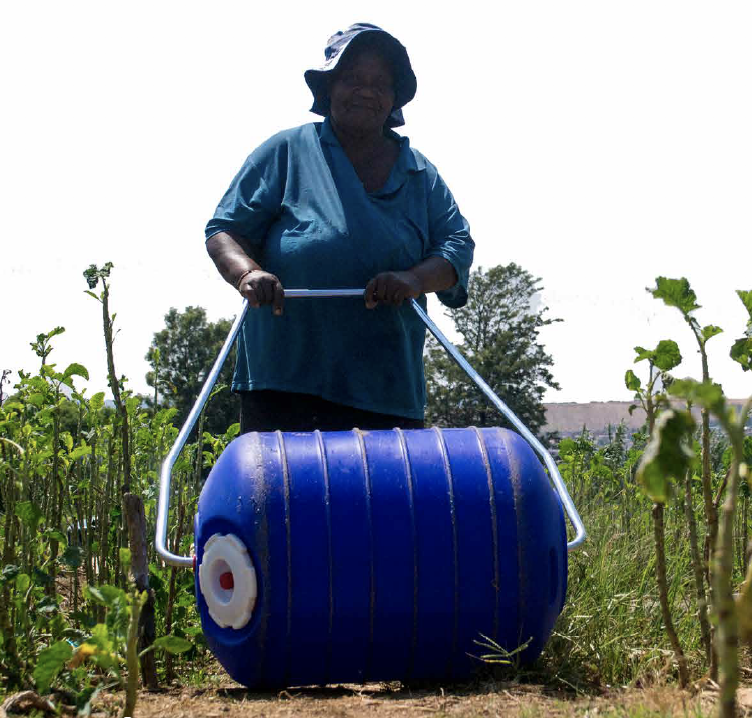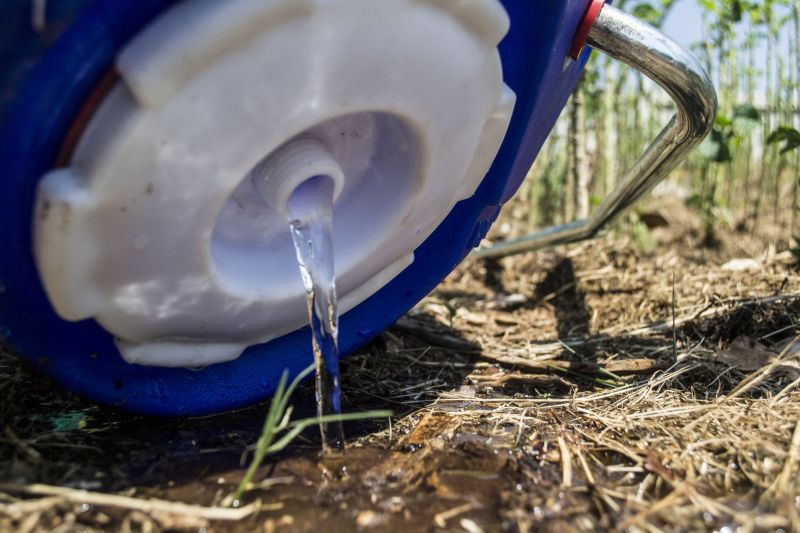Pumping Urine from Urine Diversion Toilet to a Cultivated Field
Published on by Megan Galloway, Water consultant at Royal HaskoningDHV in Academic
Hi all
I would appreciate some advice regarding my latest project. I have installed UDDT toilets in Namibia. The urine production is around 170-200 l per day and I will collect about half of it (due to restricted storage capacity) and let the remainder soak away.
After allowing for 30 days of storage, I want to pump the urine to a cultivated land area 200m away where it will be used as fertiliser. I know there are several risks with pumping urine (or conveying urine), mostly due to struvite formation. Does anyone have any experience in this? Any advice would be much appreciated!
Regards
Megan
Taxonomy
- Fertilizers
- Liquid Waste Treatment
- Waste to Value
- Fertigation management
- Fertilizer
- Fertigation
- Waste disposal
21 Answers
-
Я никогда не слышала об удобрении мочи, и почему то сомневаюсь в этом.
-
...a bit more on pathogen die off in stored urine...cheers.....Ted G
-
THIS BOOK, 30 WITH INFORMATION AND EXPERIMENTS , SUGGESTS THAT YOU COMPOST THE URINE FOR ONE YEAR IN A BIN WITH STRAW OR WEEDS BEFORE ADDING IT TO A FIELD. READ THIS HUMANURE BOOK.http://humanurehandbook.com/manual.html BEST, SONIA INGRAM
-
HI Megan......the attached book by Larsen et al ( IWA 2013) is a mine of information on urine seperating toilets. Tove Larsen .....tove.larsen@eawag.ch......is very approachable. Also attached is a paper we did on an eco village in 2011. Good luck...cheers.....Ted Gardner
-
Hi
I am no expert on this but can think of a few safe measures which one can think of deploying:
1. Urine collected and diverted for irrigation should be diluted as much as possible ,with irrigation waters.
2.If not very expensive, try best to reduce the acidity of Urine collected to near neutral by adding Lime in small doses.
3. Let urine mixed irrigation water be utilised by crops/ trees where yield / fruit is not in direct contact with irrigation water (No creepers or Vegetables like cabbage/ Cauliflower/reddish/onion, potatoes, or lettuce, etc.
4. May pass collected Urine thru Charcoal filter if smell has to be reduced !
-
think many are missing the point, Megan wants to keep a portion of the N value for agriculture before distributing a as soil nutrient--therefore she needs it in an ecologically safe form so the NH3 toxicity issues do not contaminate the crops but rather the N values will be metabolized in the rhizome of the plants and she has an inexpensive component for fertilizer (N, P, K). Struvite can be inhibited with chemicals, but selection of materials for pipe can help prevent occlusion of the lines.
-
Here's a link to a book that provides some basic information about using urine in agriculture. The site also has links that might be helpful:
http://www.liquidgoldbook.com/
-
Meghan hope this will assist
-
Megan.....please see brochures.
Email me to commence what could be a healthy dialogue.
Dr. E. Hugh Pettman
-
Megan.......please see our website.
We have much experience and can help you with our 100% ORGANIC and biodegradable solution.
-
I hope everyone has the right idea,.
* There is a way to use dirty and abandoned water to suit your needs,
* Where should I use living sewage?
* There is a way to use dirty water as it flows,
The information you provide will be managed and used in accordance with our Privacy Policy.
Thanks for completing the form
You w -
You can use a small MBBR system to remove ammonia to acceptable levels www.eecusa.com
-
Have a look here http://www.futurewater.uct.ac.za/dyllon-randall
-
Hi Megan. I would also recommend that you contact Dr Dyllon Randall and ask his opinion. He used to work in my team at Aurecon but then relocated to Switserland where he worked for the Swiss Federal Institute of Aquatic Science and Technology (Eawag). His research focused on the stabilization and treatment of source-separated urine. He returned to Cape Town and is now a lecturer at UCT. He has a lot of experience with this and should be able to advise you. His email address is dyllon.randall@uct.ac.za
Good luck!!
Louis
1 Comment
-
Thanks Louis, I have come across him on Eawag and didn't know he was at UCT. Very useful, I will get in touch.
Best regards
-
-
Dear Megan,
The idea is great .I when we were using this urine for vegetables we dont have any experience in2004 ,When we used with out dilute the plants had dried up.Wont pour very near to plant.Use 3or 4 times water when urine is using.Regardingthe vegitables and fruit it was extra big and good quality.We didnot conducted any research on this.
1 Comment
-
Thanks Mathai, yes I think the application of urine as fertiliser has to be done very carefully to avoid burning the plants. I'm fortunate to have a lot of space and time to experiment and find out what works best. I will share my results. Regards
-
-
Hi Megan,
I attended an interesting presentation at our biennial WISA 2018 conference in Cape Town last week. The paper was presented by Dr Dyllon Randall (University of Cape town). In short urine was collected in containers containing lime. Calcium phosphate precipitates (can be recovered as solid fertiliser) and the liquid portion is essentially sterilised due to high pH but still rich in nutrients and can probably be utilised with lower risk of pathogens and struvite issues. Unfortunately no further contact detail for Dr Randall, but I am sure WISA will be able to assist. Alternatively I can try and get more info if you are interested.
Regards
1 Comment
-
Many thanks Andre, I have been given contact details for him. I haven't heard of using lime to create a ppt, that is very interesting- thanks!
-
-
Hi Meghan Long term storage of urine is best as it takes about 6 months for urine to sanatize itself and naturally treat itself after that period one can use urine as a fertilizer using a 3:1 water to urine ratio 1 part urine 3 parts water
Ensure that you have a well sealed container to prevent nitrogen gas loss , leaks etc
the risk of decease transmission from stored urine is very low , once the storage process is complete, and when you want to apply the urine use effective PPE: ie gloves masks and goggles you can either apply via spray or leaching
hope this helps
1 Comment
-
Thank you Bruce, noted!
-
-
I Megan, my name is Keith Peters and my company is SolEco Africa. We have an organic product that will treat your problem as it was specifically designed to handle septic tank waste. please either call me 083 974 2168 or email me for more info keith@katzenbar.co.za
-
I suggest that you do some small scale testing first. The nitrogen load could be very high and burn the crop if it cannot tolerate the dosage. Might need to dilute for some crops.
1 Comment
-
Hi Joseph, yes I suspect that there will be too much urine to use on the space available but I have time to experiment and find out what works best. Regards
-
-
We can devise a system that can be used on a sump pump type system we the urine storage gets to a processing level it can be pumped thru our system and then stored or used for anything. It will be potable. Without much if any loss. This system could run on a our solar power system and when power is off just simply gain urine storage volume for next run of processing.
-
Hi Megan
Unfortunately we are not familiar with urine issues, but you may want to consider using specially colour-coded Hippo Rollers (90-litre) to help you move and temporarily store the urine.
Normally they are used to transport water much more easily.
All the best
Grant


1 Comment
-
Hi Grant, thanks, this is actually a great idea and could make the application a lot easier. I will have a look! Best regards
-